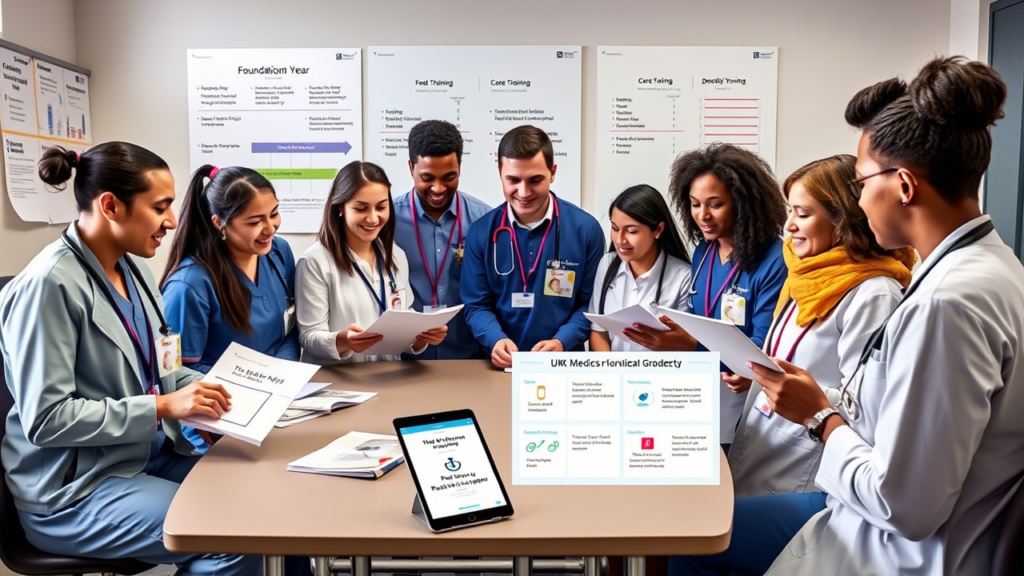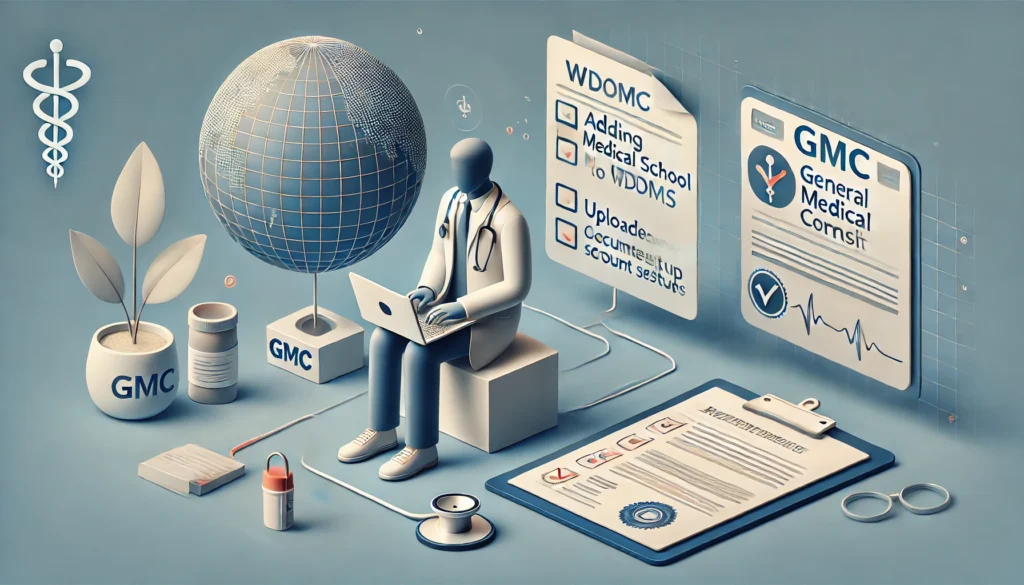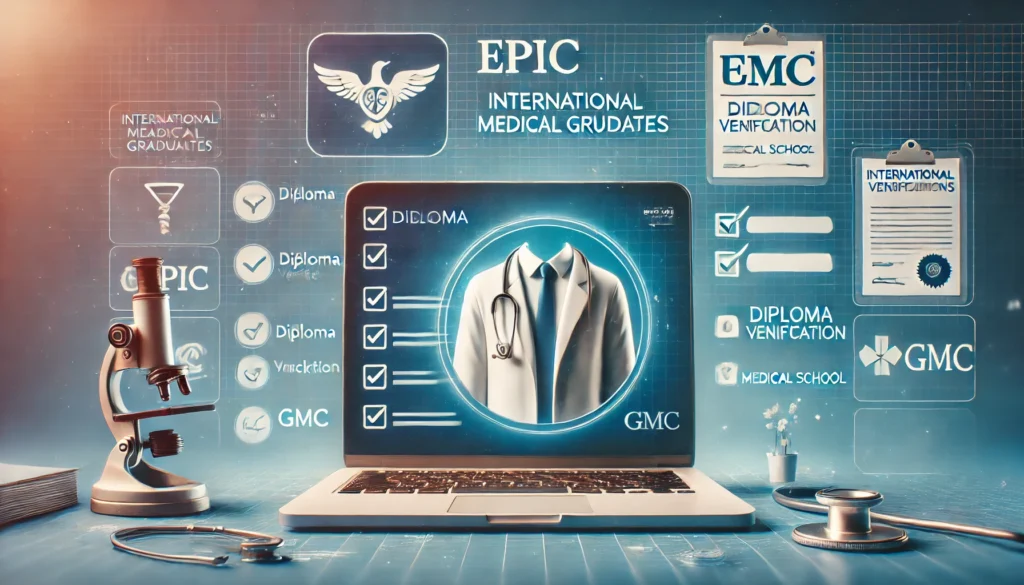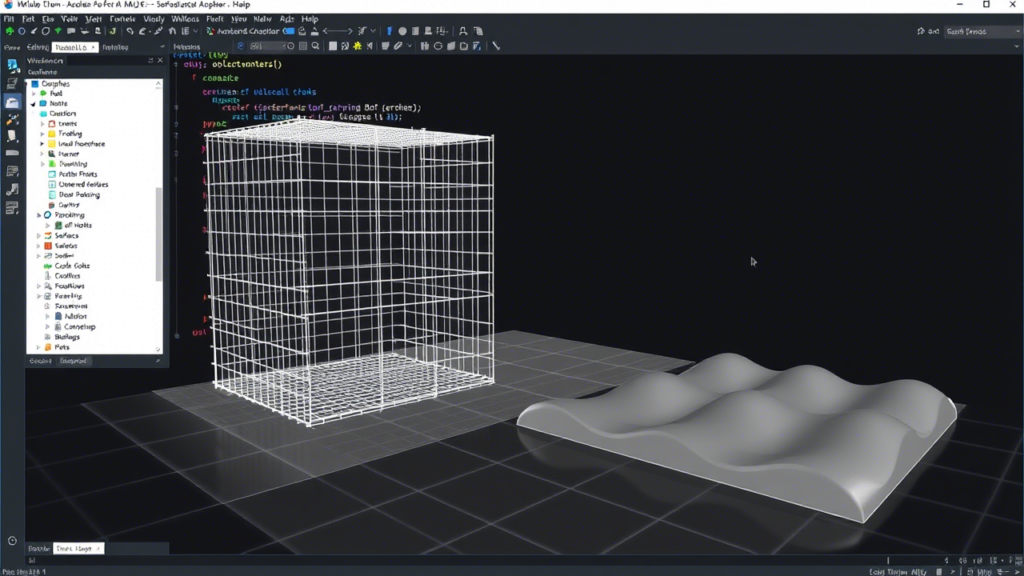Entering speciality training in the UK is a significant milestone for International Medical Graduates (IMGs). However, navigating the system can feel overwhelming without understanding the pathways and strategies to succeed. In this guide, we’ll break down the UK training system, share tips for excelling in the Specialty Recruitment Assessment (SRA), and explore alternative routes if you don’t secure a training post immediately. Let’s get started!
Why Is Understanding Specialty Training Important?
Speciality training is your gateway to becoming a consultant or GP in the UK. Without a clear roadmap, you may miss opportunities or struggle to progress in your career.
- Key Takeaway: Knowing the system helps you plan effectively and compete confidently.
- Good News: With preparation and persistence, you can secure a training post that aligns with your goals.
Read More: Surgical Training in UK
Overview of the UK Training System
The UK medical training pathway is structured into three main stages:
1. Foundation Year (F1 and F2)
- A two-year program for newly qualified doctors.
- Focuses on general medical and surgical rotations.
- Provisional GMC registrants must complete this before progressing to speciality training.
2. Core Training
- A 2-3 year program for specialities requiring broad experience (e.g., internal medicine, surgery).
- Leads to Membership exams like MRCP or MRCS.
3. Specialty Training
- Lasts 4-6 years, depending on the specialty.
- Combines clinical practice with exams and assessments.
- Completion leads to CCT (Certificate of Completion of Training), allowing you to apply for consultant roles.
Important Note: Some specialities (e.g., GP, psychiatry) offer run-through training, combining core and speciality training into one program.
Tips for Scoring High in the Specialty Recruitment Assessment (SRA)
The SRA is a critical step in securing a speciality training post. Here’s how to prepare effectively:
1. Understand the SRA Format
- Clinical Problem Solving (CPS): Tests your ability to diagnose and manage clinical scenarios.
- Professional Dilemmas (PD): Assesses your judgment in ethical and professional situations.
2. Practice Past Papers
- Use resources like Pastest, Passmedicine, and BMJ OnExamination to simulate the exam.
- Time yourself to improve speed and accuracy.
3. Focus on Weak Areas
- Identify topics where you struggle and dedicate extra time to mastering them.
- Example: If ethics is challenging, review GMC guidelines on Good Medical Practice.
4. Develop Exam Strategies
- Prioritize high-yield topics like cardiology, respiratory, and gastroenterology for CPS.
- For PD, practice answering ethically sound and patient-centred responses.
Pro Tip: Join study groups or forums like UK Medics to exchange tips and stay motivated.
Alternative Routes If You Don’t Secure a Training Post Immediately
Not securing a training post doesn’t mean your journey ends. Here are alternative routes to consider:
1. Non-Training Jobs
- Gain valuable NHS experience while improving your CV.
- Examples: Trust-grade doctor, locum roles, or clinical fellowships.
2. Clinical Attachments
- Shadow consultants or join teams to gain exposure to your desired speciality in Clinical Attachment.
- Use these opportunities to build relationships and secure references.
3. Membership Exams
- Prepare for exams like MRCP, MRCS, or MRCGP to strengthen your application.
- Passing these exams demonstrates commitment and competence.
4. Networking
- Attend conferences, workshops, and career fairs to connect with senior doctors.
- Build a professional profile or get help from UK Medics on platforms like LinkedIn or Academia.edu.
Important Note: Use the UK Medics app to track training vacancies and find non-training opportunities.
Common Challenges and How to Overcome Them
Challenge 1: High Competition
- Solution: Highlight your application’s unique experiences, such as international work or research.
Challenge 2: Limited References
- Solution: Seek references from clinical attachments or non-training roles.
Challenge 3: Rejection
- Solution: Request feedback from recruiters to identify areas for improvement.
Summary of Key Takeaways
- Training Pathways: Understand the Foundation Year, Core Training, and Specialty Training stages.
- SRA Preparation: Practice past papers, focus on weak areas, and develop exam strategies.
- Alternative Routes: Explore non-training jobs, clinical attachments, and membership exams.
- Leverage Tools: Use the UK Medics app to stay informed and connected.
Take Action Today!
Securing a speciality training post requires planning, preparation, and persistence. By understanding the UK training system and leveraging available resources, you’ll be well-prepared to achieve your career goals.
Now it’s your turn!
- Have you taken the SRA or applied for speciality training? Share your experience in the comments below.
- Download the UK Medics app for personalized training pathways and exam preparation guidance.
- Please share this post with fellow IMGs who might find it helpful.
Let’s make your journey to speciality training in the UK as smooth as possible!










